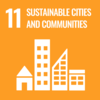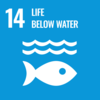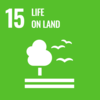Durham University has developed a comprehensive Biodiversity Strategy, with a target to achieve Biodiversity Net Gain by 2032. Our ambitious strategy has already delivered results, from identifying seven species of moth rarely recorded in 25 years, trialling different approaches to wildflower meadows, working to re-introduce Black Poplar, the rarest tree in the UK, and achieving ‘Gold’ accreditation from Hedgehog Friendly Campus.
The development of the strategy has seen a collaboration between the Estates & Facilities Directorate and the Department of Biosciences, with three summer internships to develop our baseline and action plan, funded by Estates. We have also identified opportunities for partnership, working with the Wear River’s Trust to promote awareness of invasive species to local landowners.
Our strategy has highlighted the species richness of our estate, with 983 different plants, birds, mammals, and insects identified. We have shared key findings on the iNaturalist platform and delivered talks to key stakeholders and schools across County Durham.
Durham University has taken a comprehensive approach to address nature across measurements, target setting, and implementation. This is a leading example for how to engage with both local schools and on an international stage.
“Preserving biodiversity ranges from our Botanic Garden, to volunteering and outreach programmes with local schools. We are one of the founder members of the Nature Positive Universities Network. Winning this award will inspire our communities to strive towards a common goal of preserving our beautiful environment for future generations to enjoy.”
Professor Karen O’Brien, Vice-Chancellor and Warden



